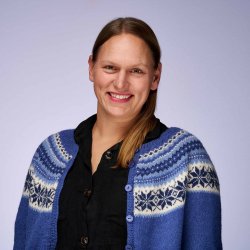CalfComfort – Nurturing postive welfare in calves
Animal welfare legislation and research has traditionally focused on alleviating animal suffering. However, the absence of poor welfare does not necessarily mean that animal welfare is good. The CalfComfort project will develop indicators that measure animal welfare at the positive end of the scale. The project will investigate different behaviours, as well as microbiome and biomarkers.
The emphasis of animal welfare legislation has traditionally been to alleviate animal suffering. Today, the Norwegian Animal Welfare Act states that the welfare of animals should be good. In order to assess animal welfare objectively, animal welfare indicators are used. Most of these indicators measure signs of poor welfare, e.g. ill-health, injuries, abnormal behaviour, or stress. However, good welfare is not the same as absence of poor welfare.
The CalfComfort project aims to improve dairy calf welfare by developing positive welfare indicators of good health and fulfilled behavioural needs. Further, we will evaluate and validate selected biomarkers as indicators of positive welfare in the short and the long run. Also, the effect of prolonged maternal contact for the development of calf gut and rumen microbiome will be investigated. In a controlled clinical trial we will compare three management groups. In the first group, cows and calves are housed together until 8 weeks of age. The second group is similar to today’s conventional calf rearing; calves are isolated from their dams at birth, group housing with peers is delayed and calves get restricted amounts of milk. The third group is in between; calves are separated from the dams immediately after birth, but reared with peers and given free milk allowances.
We will document effects of free intakes of colostrum on calf growth and health. In a separate study, we will assess the transfer of immunoglobulins from colostrum and associated health calf effects, with the aim of investigating the level of passive immunity sufficient for protection against diseases under Norwegian conditions. We will also conduct a questionnaire among Norwegian dairy farmers to identify motivation and barriers to improve rearing conditions for dairy calves. The findings will be used to develop practical tools for identifying and documenting positive calf welfare on-farm.
Partners
- NMBU Vet
- NMBU Biovit
- Ruralis
- University of Veterinary Medicine Vienna
- University of Kentucky
- University of British Columbia
- University of Groningen





